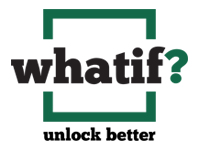
“What If You Were Obsolete in Three Years?”
"When faced with disruption, we tend to want to hold on tighter to what we have."
What if your job or your skills were obsolete in three years?
Not phased out slowly, but redefined by something faster, smarter and cheaper. What if the way you create value today wasn’t enough tomorrow?
Would you be ready? Or would you realize too late that relevance doesn’t retire, it rewires.
I raise these questions not to scaremonger, but to point out that this is grounded in possibility. Think of it as shifting from protection to preparation.
Why This Question Matters Now
AI isn’t coming. It’s here, and its potential is reshaping how we lead, create, and contribute. I don’t see it replacing us all in one fell swoop. It will replace the parts of us that stop evolving.
The half-life of skills is shrinking. We are seeing static expertise eroding and roles being rewritten. This doesn’t mean people necessarily failed; the world just changed faster than they did.
We’re already seeing it in professions like radiology, where AI can read scans faster, and in some reported cases, more accurately than seasoned specialists. The radiologists who stay relevant are redefining their value in terms of interpretation, patient context, and complex judgment. They’re not resisting AI, they’re redesigning what only they can do.
This isn’t about fear, it’s about readiness. The best leaders don’t step back and think about how to survive change; they take action. They consider how they can position themselves to grow through it and become even more relevant in a reimagined world.
This raises a fundamental question:
If what I’ve built stops being enough, what will I build next?
Renew Replace Reinvent
When faced with disruption, we tend to want to hold on tighter to what we have. But relevance isn’t something we preserve. It’s something we practice.
Here’s a simple framework to reflect on:
What do you need to renew?
Some things won’t need replacing. They need recommitment.
- Core values
- Trusted relationships
- Strategic clarity
In an AI world, these become our competitive edge, provided we sharpen them.
What do you need to replace?
We all carry tools, habits, and assumptions that once served us well but may now slow us down.
- Expertise equals authority
- What worked for the past five years will work for the next five
- Soft skills matter less than technical skills
Replacement is harder than renewing, but it’s how we make space for what’s next.
What do you need to reinvent?
This is where the real work takes place. It’s where we ask not what we want to do, but who we want to become.
- From expert to coach
- From manager to multiplier
- From knowing answers to designing better questions
And here’s where we need to adopt a growth mindset and tell ourselves that reinvention isn’t failure, it’s foresight.
Your Next Move
Lead with the future in mind because this is about more than your career; it’s also about your leadership.
Shift the question from fear, “Will AI make me obsolete?” To opportunity, “Am I building the kind of leadership that stays valuable in a world that can’t be predicted?”
Remember that the people we lead watch us closely. Our willingness to learn, let go, and level up is the most powerful signal we can send in a world where the pressure is on to perform, not transform.
Ask yourself, and ideally your team:
- What are we assuming will stay relevant that might not?
- What strengths do we need to deepen, not just display?
- What’s one reinvention that we’ve been holding off on that we need to start now?
Closing Thought
If you were starting your role fresh today, in the era of AI, what would you design differently? And what’s stopping you from starting now?
If we wait until what we have is obsolete before reinventing it, we will sadly have waited too long.
Let’s unlock better—together.
Kevin


Leave a Reply